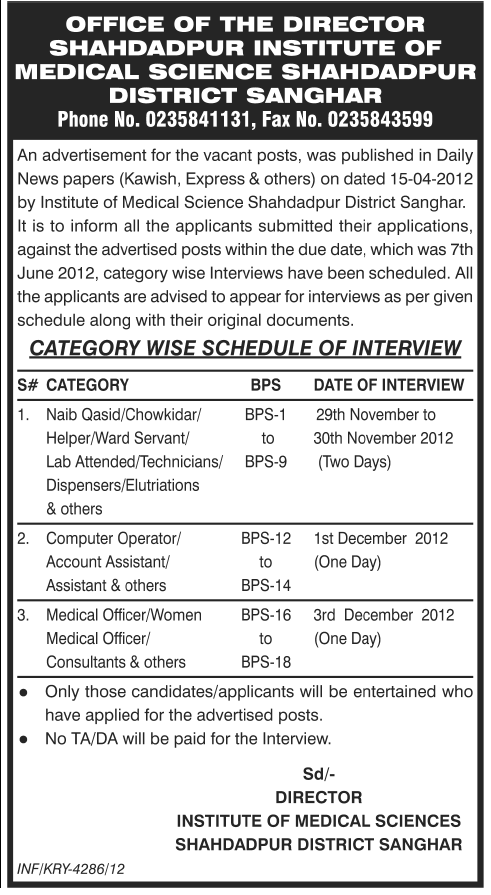
Ombudsman's Visit to Shahdadpur Institute of Medical Sciences Highlights Healthcare Challenges and Achievements
During a recent visit, the Regional Director of the Ombudsman Sindh, Shabbir Ahmed Memon, toured the Shahdadpur Institute of Medical Sciences (SIMS) to assess its healthcare services and overall performance. The inspection focused on evaluating the hospital’s infrastructure, patient care, and operational efficiency. Dr. Basheer Ahmed Jamali, the Director of SIMS, provided an overview of the hospital’s daily operations, highlighting the significant number of patients it serves.
A Hub for Essential Medical Services
Dr. Jamali shared that the hospital manages approximately 55,000 outpatient department (OPD) cases each month, along with 300 to 400 maternity cases. This high volume of patients underscores the critical role that SIMS plays in the region, especially for those who cannot afford private medical care. The hospital is committed to providing free surgical and medical services to underprivileged and middle-class communities, ensuring that essential healthcare remains accessible to all.
Shabbir Memon expressed his satisfaction with the cleanliness of the facility and the quality of services offered. He commended Dr. Jamali and his team for their efforts in maintaining high standards of hygiene and patient care. His praise reflects the positive impact that the hospital has had on the local population.
Calls for Better Resources and Support
Despite the commendable efforts, the hospital has identified several areas where additional support is needed. According to a statement, SIMS has formally requested the Sindh government to provide essential equipment and resources. These include an oxygen plant, dialysis machines, MRI machines, and more specialist doctors. Such additions would significantly enhance the hospital’s capacity to treat complex medical conditions and improve overall patient outcomes.
The need for these resources highlights the challenges faced by public healthcare institutions in rural and semi-urban areas. Limited access to advanced medical technology and skilled professionals often hampers the ability of such facilities to meet the growing demand for quality healthcare.
Key Personnel Present During the Inspection
Assistant Registrar Murtaza Memon was also present during the visit, indicating the importance of the event within the hospital’s leadership structure. His presence suggests that the hospital is keen on addressing the concerns raised by the Ombudsman and working towards long-term improvements.
Broader Implications for Public Healthcare
The visit by Shabbir Ahmed Memon brings attention to the ongoing issues within the public healthcare system in Sindh. While SIMS is making strides in providing essential services, the lack of adequate infrastructure and staffing remains a pressing concern. Addressing these gaps requires coordinated efforts between local authorities, healthcare providers, and policymakers.
Investing in public healthcare facilities like SIMS not only improves the well-being of the community but also contributes to the overall development of the region. It ensures that even the most vulnerable populations have access to life-saving medical care, reducing health disparities and promoting social equity.
Conclusion
The inspection by the Ombudsman Sindh serves as a reminder of the critical role that public hospitals play in the healthcare landscape. While SIMS has demonstrated commendable service delivery, the need for better resources and support remains evident. By addressing these challenges, the hospital can continue to serve as a vital lifeline for the communities it supports, ensuring that no one is left behind in the pursuit of good health.
Post a Comment